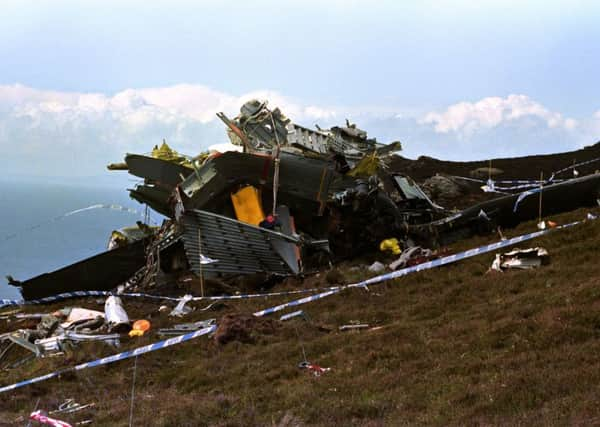Co-operation on Kintyre Chinook crash welcomed


In June 1994, the Chinook fell from the sky in thick fog on the Mull of Kintyre and killed 29 people. Among them were senior Army, RUC and RAF officials.
Details were contained in a state file from the time released by the Public Record Office of Northern Ireland (PRONI).
Advertisement
Hide AdAdvertisement
Hide AdA British government official wrote: “A few years ago we could have expected an embarrassed silence from the Irish at such a disaster involving acknowledged members of the intelligence community.
“These public reactions illustrate the change in attitudes towards security co-operation.”
Then taoiseach Albert Reynolds said the crash was a “dreadful tragedy” for the families of the dead and those who worked in public service.
Tanaiste Dick Spring said it was a setback in the common task of protecting human life against violence.
Garda commissioner Patrick Culligan said he was deeply saddened, knew many of those killed personally and valued their advice and co-operation in counteracting terrorism and crime at every level.
Passengers onboard the helicopter comprised ten senior members of the RUC and nine army staff officers of various ranks engaged on counter-terrorism activities, together with six civilian security specialists working in the NIO.
Four RAF crew members also died.
The flight was not unusual in an aircraft with a long-established reputation for safety and widely used in Northern Ireland, briefing lines contained in the archived file said.
A personal statement from then prime minister Sir John Major in June 1994 said: “These officers and officials from the RUC, the army, the RAF, the Northern Ireland Office and other departments were all in their different ways, carrying out work of importance to Northern Ireland.”